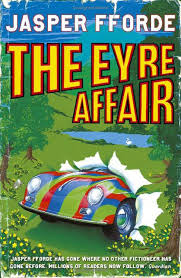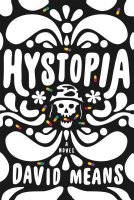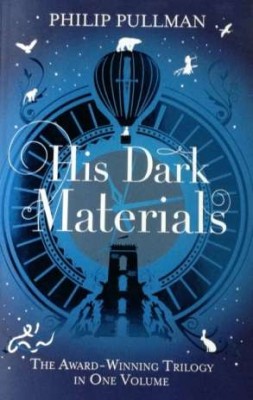In an alternative version of American history, JFK is in his third term as President, Michigan is basically one huge fiery riot, and the government is subjecting soldiers returning from Vietnam to experimental psychological treatment. Reenactments of their traumas are resulting in a loss of memory of any of the traumatic events; for some, who went to war with childhood friends, this includes large gaps in their memories over the course of a lifetime. Meanwhile, one failed experiment, known as Rake, has embarked on a killing spree, dragging along a psychologically damaged young woman, Meg, whose boyfriend was killed in Vietnam.
Continue reading Hystopia
Maybe you recall, coming up for ten years ago, the film version of the first book in this series, Northern Lights? Except the movie was called The Golden Compass, after the American version of the book, because Americans fall into a funk of existential dread if they don’t get to name everything themselves. It starred Nicole Kidman and Daniel Craig? Yeah, don’t watch that. It was made when steampunk was still a thing. It has the worst child acting I think I’ve ever seen, and I was in a community theatre production of Annie. But the books. The books are…well.
Continue reading His Dark Materials
I don’t know whether many of us will be familiar with the central conceit of this novel: it was a bestseller, but in the early 90s when I wasn’t paying attention to trends in literature. I knew of it somehow, and was saving it because it’s pretty much all my guilty-pleasure genres in one: historical fiction detective story, set in parallel universe. In short, it’s an alternative 1964 in which Germany has won WWII and most of Europe is under the rule of Adolf Hitler, who is about to celebrate his 75th birthday.
Continue reading Fatherland

In an alternative 1985, dodos and neanderthals are no longer extinct, the Crimean war is entering its 131st year, and French Revisionists are suspected of tinkering with the Battle of Waterloo. More importantly, the barriers between fiction and reality are not as solid as one might think, and crimes against literature are considered sufficiently serious to warrant a dedicated Literary Detective force. This is the first and best in a series that is pure joy for the repressed Arts grad in all of us, as it tinkers with the rules of logic, history, matter, and reality (and along the way manages to answer the question of who REALLY wrote Shakespeare’s plays). Literary (and artistic and historical) winks and jokes abound; I’ve read it at least ten times and I’m pretty sure I’m still not getting some, having never read “Martin Chuzzlewit” – still, I really believe that even those with minimal experience of the English canon will enjoy these books. Having said that, an acquaintance with the basic plot of Jane Eyre will help.



